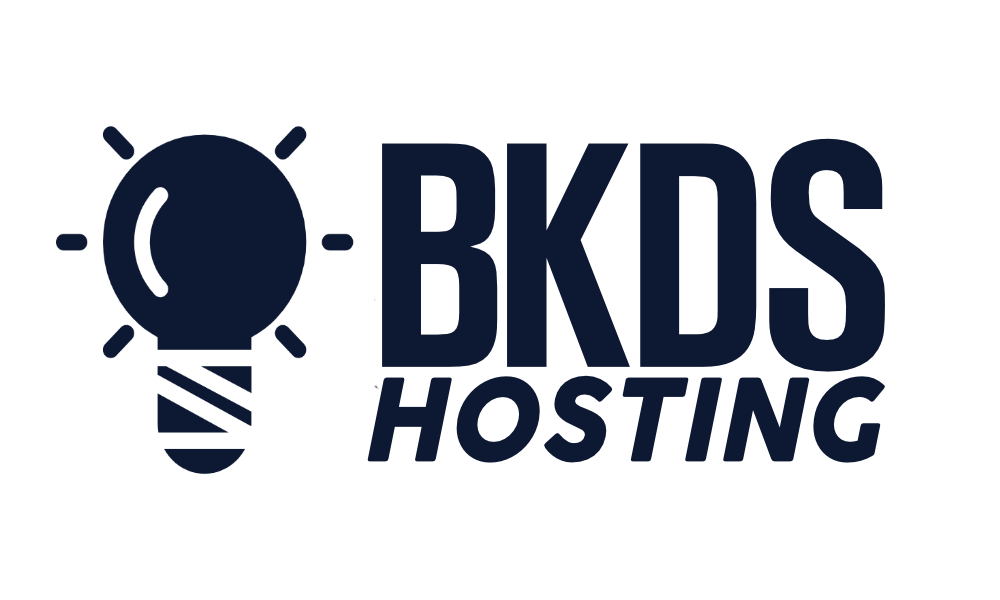In the digital age where online presence has become a determining factor for the success of businesses, small business owners find themselves navigating the complex landscape of website hosting. The appropriate selection and efficient use of website hosting can significantly uplift a small business, improving its reach and overall brand image. This discussion aims to provide an in-depth exploration of 15 strategic tips that can aid small businesses in leveraging website hosting to their advantage. We shall dissect these tips, analyzing their relevance and practical application for small businesses, and in doing so, we may uncover the potential of website hosting to act as a catalyst for business growth.
Understanding Website Hosting Basics
In order to effectively establish an online presence, it is crucial for small businesses to understand the basics of website hosting, a service that stores and serves website files to internet users. Small Business Owners, especially those venturing into e-commerce or other online platforms, need to understand that their business needs greatly influence the type of hosting service they require.
Shared hosting is a cost-effective website package for start-ups. It shares resources with other websites on the same server, which may sometimes lead to slower website performance. This can impact the user experience, a critical aspect of website design.
Virtual Private Server (VPS) hosting, on the other hand, offers more control and resources, ideal for growing Small Business Websites. It guarantees a certain amount of server resources, leading to improved website performance and stability.
For large-scale websites that experience high traffic, dedicated hosting is the optimum choice, providing the highest level of resources and control. Finally, cloud hosting provides scalability, allowing small businesses to adjust resources based on demand, offering a flexible solution for fluctuating business needs. An understanding of these hosting options empowers Small Business Owners to select the most suitable website packages for their enterprise.
Choosing the Right Hosting Provider
Navigating the myriad of hosting providers requires a keen understanding of your business's specific needs, keen attention to scalability for future growth, and a focus on providers who offer comprehensive mobile support and chat features. For small businesses wanting a robust digital presence, this is an essential step in transforming a basic WordPress website into a dynamic small business website.
When choosing your hosting provider, consider your business's current size and future growth plans. A shared hosting platform may suffice for a start-up, but as your web traffic increases, you may need to upgrade to a VPS or dedicated server. Your chosen provider should be able to facilitate these transitions seamlessly.
The domain name is your online address and should be easily associated with your business. A good provider will help you manage and protect your domain.
Lastly, a high-quality hosting provider should offer round-the-clock customer support, preferably with live chat features. This ensures that any technical glitches on your website can be swiftly resolved, minimizing downtime and improving the user experience.
Importance of Reliable Hosting Services
The prominence of reliable hosting services cannot be overstated for small businesses aiming for a robust online presence. Such services ensure optimal website uptime, thus preventing loss of potential customers due to site inaccessibility. Additionally, they provide secure data transfer, safeguarding sensitive business and customer information from potential threats.
Ensuring Website Uptime
Ensuring website uptime, a critical component of customer satisfaction and trust, hinges on the selection of a reliable hosting service that guarantees minimal downtime and provides robust server infrastructure. This ensures the website traffic of small businesses is uninterrupted, elevating customer experience to the next level.
The table below illustrates the role of a reliable hosting service in ensuring website uptime:
| Importance |
Details |
| Minimal Downtime |
Prevents loss of potential customers and preserves customer trust |
| Accessibility |
High uptime percentages enable consistent website accessibility |
| Robust Infrastructure |
Ensures website availability through robust server infrastructure and backup systems |
| Proactive Maintenance |
Regular monitoring maintains website uptime |
| Business Growth |
Contributes to positive user experience and supports taking the business to the next level |
Investing in reliable website hosting can elevate small businesses, enhancing web design and overall user experience.
Secure Data Transfer
In the realm of digital commerce, secure data transfer serves as a linchpin, safeguarding sensitive information during transit and ensuring it remains inaccessible to unauthorized entities. Small businesses, utilizing website hosting services, must prioritize secure data transfer to protect their business website and reinforce their online presence. Reliable hosting services offer data encryption and secure protocols, ensuring the confidentiality and integrity of transferred data. This not only fortifies the digital marketing endeavors but also supports the SEO strategy by instilling trust in search engines about the security of the website. Moreover, hosting services provide backups and recovery options, safeguarding against data loss and boosting the resilience of businesses against cyber threats. Hence, secure data transfer, when underpinned by reliable hosting services, can elevate small businesses in the digital space.
Website Speed and Hosting
Navigating the realm of website speed and hosting requires strategic decisions, as these factors play a pivotal role in enhancing user experience and impacting your SEO rankings. For small businesses looking to elevate their online presence, optimizing both website hosting and loading speed is crucial.
When considering website speed and hosting, keep these key aspects in mind:
- Optimize your website's performance to ensure fast loading times. This can significantly improve user experience, particularly on smaller screens where loading speed counts most.
- Choose a reliable website host. This decision will help maintain optimal website speed and ensure your website is ‘responsive' and accessible at all times.
- Consider using plugins and file compression techniques. These can help reduce the size of your website's files and, in turn, enhance loading speed.
- Regularly monitor and manage website traffic volume. This proactive approach helps maintain optimal speed and can prevent potential website crashes during high traffic periods.
Role of Hosting in Website Security
A robust hosting setup serves as the bulwark of website security, providing a safe haven for data storage while actively shielding your online presence from debilitating cyber threats. As small businesses increasingly engage with the online community, the role of hosting in website security becomes paramount.
Security-oriented website hosting can protect the brand identity and business name, essential components of a small business's digital footprint. Hosting providers offer tools like SSL certificates and firewall protection, which are critical in safeguarding against potential cyber attacks. Regular updates, patches, and proactive malware scanning by these providers are essential for minimizing vulnerabilities and ensuring the integrity of the website.
Additionally, hosting providers offer regular backups and DDoS protection, essential measures to prevent data loss, and maintain website integrity. Reliable website hosting also influences SEO techniques, as search engines prioritize secure websites in their ranking algorithms. Thus, choosing a hosting provider with a strong reputation for prioritizing security can significantly enhance website security, ensuring that a small business's online presence remains secure and trustworthy. This underlines the crucial role of hosting in not just maintaining, but elevating, small businesses in the digital realm.
Hosting and Website Scalability
While maintaining a secure digital presence through reliable hosting is of utmost importance, equally essential is considering the scalability of your website, a pivotal aspect that is directly influenced by your choice of hosting services. Small businesses need to consider this factor when they build a website, as it can significantly impact its ability to handle increased website content and visitors.
Hosting and website scalability play a crucial role in accommodating your website's growth, especially considering the potential increase in organic traffic. Essential aspects to consider include:
- The ability of your hosting plan to allow for scalability and future growth.
- The availability of mobile support and chat features from your website host to cater to your business needs.
- The reliability of your website host in ensuring a smooth user experience and avoiding limitations on expansion.
- The impact of your hosting plan on your website's SEO.
Choosing a hosting plan that aligns with your business needs and budget, while offering room for growth, is necessary to ensure your website can efficiently accommodate increased traffic. This approach aids in maintaining a robust digital presence and achieving your business objectives.
Impact of Hosting on SEO
The influence of your chosen hosting service on your website's Search Engine Optimization (SEO) is a critical factor that small businesses often overlook. High-quality website hosting is pivotal for maintaining an effective online presence, as it directly impacts SEO by determining the accessibility, speed, and security of your website.
Firstly, uptime is paramount to SEO performance. If a website is frequently down due to hosting issues, it will be difficult for search engines to crawl and index your site, negatively affecting your rankings. Secondly, server location also plays a role. Search engines prioritize websites with faster load times, and closer servers can reduce latency.
Furthermore, the security provided by your hosting service is crucial. Encrypted connections (HTTPS) are a ranking factor for Google, meaning websites without SSL certificates may suffer in search rankings.
Additionally, the ability to handle high traffic volumes without compromising on speed or user experience is critical. Slow websites can deter visitors, increase bounce rates and send poor signals to search engines.
Lastly, hosting services that offer robust technical support can assist with SEO through website optimization, effective use of keywords, and quality website content. In conclusion, the right hosting service can profoundly enhance your SEO, making it an essential consideration for small businesses.
Importance of Technical Support
Undeniably, robust and efficient technical support serves as a cornerstone for any small business, ensuring smooth, secure operation of their website while providing expert guidance on optimization and swift resolution of any issues. The importance of technical support cannot be understated when it comes to website hosting for small businesses. It plays a pivotal role in maintaining the overall health of the Business Website To Elevate its brand awareness.
The importance of technical support in website hosting for small businesses is multi-faceted:
- It ensures the uninterrupted operation of the websites content, crucial for maintaining customer engagement and trust.
- Technical support is instrumental in providing effective Content Management, an essential marketing tool in today's digital landscape.
- It aids in the quick resolution of problems, minimizing downtime, thus preserving the brand's image and customer satisfaction.
- With its expert guidance, it helps optimize the website's performance, a key factor in attracting and retaining customers.
Choosing Between Shared and Dedicated Hosting
Navigating the decision between shared and dedicated hosting requires a nuanced understanding of your business's specific needs, considering factors such as traffic volume, budget constraints, and performance and security requirements. Shared hosting, a cost-effective option, involves sharing server resources with other websites. This is typically suitable for small businesses with low to moderate traffic, allowing them to elevate their online presence within budget constraints.
On the other hand, dedicated hosting offers exclusive access to server resources, ensuring high performance and robust security. Although more expensive, this option is ideal for businesses with high traffic volume and specific performance needs. It helps to build trust with your target audience by ensuring a seamless user experience.
When choosing between shared and dedicated hosting, weigh the trade-offs between cost, performance, and security. Each option available has its merits and potential drawbacks. These tips should guide you in making an informed decision that aligns with your business objectives. Remember, the right website hosting choice can significantly elevate your small business, helping it to stay competitive and resonate with your target audience.
The Role of Bandwidth in Hosting
Bandwidth, a critical factor in website hosting, directly influences the volume of data that can be transferred, thereby affecting the website's speed and performance. Assessing the appropriate bandwidth for your site is necessary to withstand visitor traffic and prevent slow load times or site crashes. Techniques for managing bandwidth usage, crucial for maintaining optimal website performance and user experience, will be further explored in this section.
Understanding Bandwidth Importance
In the realm of website hosting, comprehending the role and importance of bandwidth is crucial as it dictates the quantity of data exchangeable between your site and its visitors. Understanding bandwidth importance is key to elevating small businesses, as it directly impacts website performance and user experience.
- Adequate bandwidth ensures swift loading of website content, enhancing user experience.
- Insufficient bandwidth can lead to slow loading times and potential downtime, driving away potential customers.
- As your website traffic grows, so does your bandwidth needs. Select a hosting plan with scalable options.
- Regular monitoring and management of bandwidth usage ensures optimal website performance.
Bandwidth Management Techniques
Having established the importance of bandwidth for small businesses, it is vital to explore various bandwidth management techniques that play a significant role in website hosting. Firstly, bandwidth monitoring tools provide critical insights into data usage, aiding in effective management. Secondly, employing Content Delivery Networks (CDNs) can optimize website performance by distributing bandwidth. Load balancing techniques ensure equitable traffic distribution, preventing bandwidth congestion – a crucial tip for elevating small businesses. Bandwidth throttling controls data transmission, essential when website pages are accessed via mobile devices. Lastly, regular reviews of bandwidth allocation, based on traffic patterns, allow adjustments to the main navigation menu for optimal performance. These 15 tips underscore the importance of astute bandwidth management in website hosting for small businesses.
Enhancing Website Performance
Undeniably, the performance and speed of a website hinge significantly on the bandwidth allocated in the hosting plan, a factor that directly influences data transfer efficiency and user experience. Enhancing website performance goes beyond just website design and involves strategic allocation of resources in your website hosting plan.
For small businesses aiming to elevate their online presence, consider the following tips:
- Choose a hosting plan with sufficient bandwidth to ensure smooth and efficient data transfer.
- Accommodate high traffic and large file sizes by allocating higher bandwidth.
- Regularly monitor and manage bandwidth usage to maintain optimal performance.
- Remember, bandwidth is not just about speed, it's about delivering a seamless user experience.
Understanding the role of bandwidth in hosting can significantly enhance your website's performance, offering an improved user experience.
Website Downtime and Hosting
While a captivating website design is essential, ensuring minimal downtime facilitated by a reliable website host is equally critical, as it directly impacts user experience and potential business opportunities. Selecting the right website hosting for small businesses can be a game-changer.
Website downtime and hosting are interconnected. Prolonged website downtime can deter new customers and frustrate existing ones, leading to a decline in website visitors. To create a website that consistently attracts and retains users, you need to minimize downtime and ensure optimum site performance.
Consider these three critical factors when choosing your hosting service:
| Factor |
Description |
Impact |
| Uptime Guarantee |
Most hosts guarantee 99.9% uptime. |
Minimizes downtime, enhancing user experience. |
| 24/7 Support |
Round-the-clock support for technical issues. |
Quick resolution of issues, reducing potential downtime. |
| Scalability |
The ability to handle increased website traffic. |
Ensures website performance during peak times. |
Investing in a reliable host can help small businesses increase website traffic, improve user experience, and ultimately, boost sales. Remember, the goal is to keep your website accessible and functional at all times for maximum customer engagement and satisfaction.
The Significance of Storage Space
In the realm of website management, the significance of adequate storage space cannot be understated, as it forms the backbone of maintaining optimal website performance and functionality. For small businesses seeking to elevate their online presence, the appropriate allocation of storage space in website hosting is a critical consideration.
This article underscores the contextually relevant aspects of storage space in website hosting. The key tips for small businesses include:
- Sufficient storage space ensures quick loading times and ample capacity for diverse content.
- The availability of storage space is vital for the safekeeping of website files, databases, media, and backups.
- An upgrade in storage space can efficiently accommodate business expansion and mitigate the risk of data loss.
- Proper management of storage space guarantees seamless website operations and enhances user experience.
The significance of storage space lies not just in hosting the business website but also in providing a robust platform for growth. Understanding its importance and managing it effectively can dramatically improve the performance of a website, offering a competitive edge to small businesses in the digital landscape.
Domain-Related Hosting Services
Building on the importance of storage space for website hosting, another crucial aspect that small businesses must consider is the domain-related hosting services. These services are instrumental in establishing a strong online presence and achieving optimal search results.
While selecting a domain name, it is essential to ensure it's in alignment with your brand vision and niche. This not only enhances your brand identity but also improves your visibility in the digital space. The chosen website host should offer mobile support and chat features. These aspects enhance user experience, leading to increased customer engagement and retention.
Next, consider the impact of hosting on your site's SEO. A reliable web host can significantly improve your online visibility, driving more traffic to your site. Additionally, website hosting should prioritize scalability to accommodate your business's future growth.
Email Features in Website Hosting
Moving onto the domain of email features in website hosting, it is indispensable for small businesses to establish an organized and effective communication channel with their customers. Email marketing is a vital tool; it allows businesses to share engaging content, updates, and offers directly to their customers' inboxes.
Effective website hosting should provide robust email features that help to facilitate this. It is imperative to have a system that ensures reliable email delivery, while also protecting against spam. Branded email addresses that align with your business domain can enhance professionalism and brand consistency.
To make it easy for potential customers and visitors to find your Contact Information, consider the following essentials:
- A well-designed contact form: This helps to streamline communication and collect useful data from visitors.
- Multiple contact forms: Different forms for different purposes can help to manage and categorize inquiries effectively.
- Clear and visible placement: Contact forms should be easy to find and use, encouraging visitors to reach out.
- Integration with email: Contact form submissions should directly reach your inbox, ensuring timely responses.
Backup Services in Hosting Packages
Shifting our focus to the arena of backup services in hosting packages, these services are indispensable for small businesses as they provide security by consistently storing and saving website data, thereby offering a buffer against data loss. The significance of such services in website hosting cannot be overstressed as they protect the integrity of a company's digital presence.
Usually, these backup services perform automatic backups on a regular basis to minimize data loss. This feature safeguards the content, databases, and other pivotal files of websites. The consistency of these services ensures that in the event of unexpected data loss, the websites can be restored to a specific previous state.
Such a mechanism provides peace of mind to small businesses, especially when faced with unforeseen circumstances. This, in turn, elevates their confidence in managing their online presence. The role of backup services in website hosting is thus pivotal, and selecting hosting packages that offer these services is a significant tip for small businesses. These packages provide a robust safety net, proving to be a strategic investment in the long term. Therefore, investing in backup services is an effective way to elevate the resilience of small businesses in the digital realm.
Conclusion
In conclusion, effective website hosting is integral to the elevation of small businesses. It enhances online presence, ensures a seamless user experience and bolsters security. By carefully selecting a reliable provider that offers speed, ample storage space, domain-related services, email features, and backup services, small businesses can augment their visibility and customer engagement, fostering growth. Therefore, strategic investment in quality website hosting is an essential step towards sustainable business development.












































